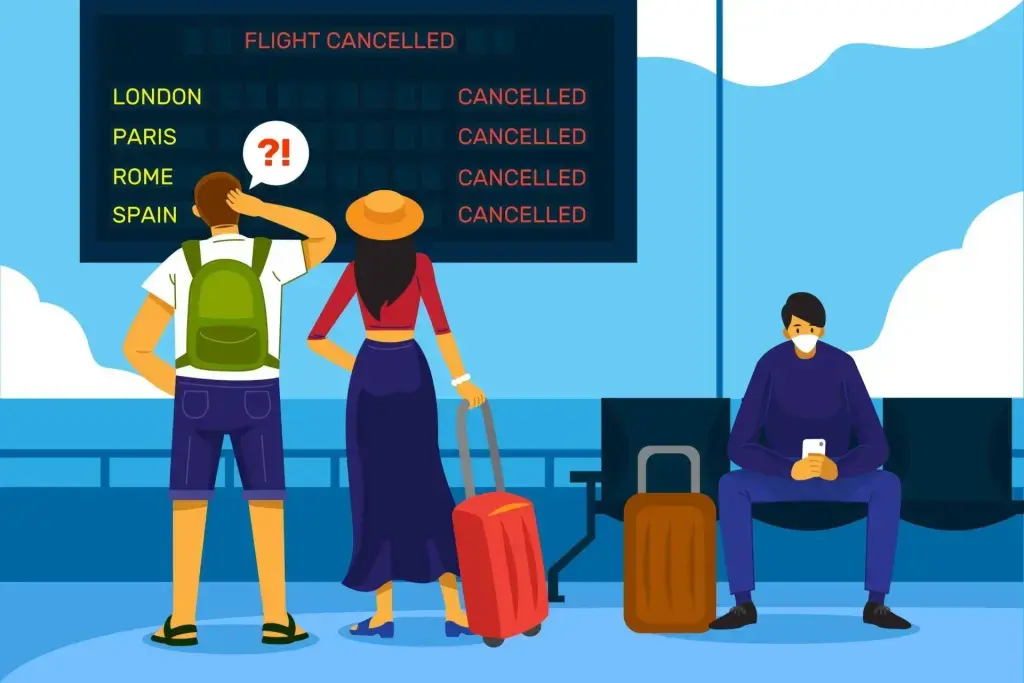Planning a trip to Cuba: what papers do you need? How can you make sure you're well covered during your stay? How do I take out travel insurance for Cuba? We tell you all about it in our complete guide!
Cuba Travel Insurance
Prix moyen constaté
10,05€/Pers*
*Tarif pour un voyage d’une semaine pour une personne de 30 ans (sans annulation).


COVID-19
Full "recommended" vaccination schedule

Mandatory documents
Valid passport is required

Residence permits
Visa required

Currency
Cuban Peso

Vaccination
No mandatory vaccines

Cuba Travel Insurance
500,000 coverage recommended by Yupwego

Best period
May to October

Emergency numbers
medical emergencies - 106
Useful information about luggage shipping to Cuba
online
Start your quotation now and obtain your medical insurance certificate insuring medical expenses up to €500,000.
Discover Cuba
Cuba in brief
Cuba, the largest island in the Caribbean, is a tropical gem with a rich history, vibrant culture and breathtaking beaches. Between its historic cities like Havana, Trinidad and Santiago de Cuba, its exceptional natural landscapes such as the Viñales Valley and its heavenly beaches at Varadero, Cuba offers a diverse experience for travelers. You can explore the colorful streets, sample unique Cuban cuisine, dance to the rhythm of the salsa and relax on the white sandy beaches. Cuba is also famous for its cigars and rum, which are popular souvenirs. However, to fully enjoy this enchanting country, it is essential to find out about travel conditions and formalities before setting off.
Must-sees
See our complete guide to in Cuba.
Cuba Travel Insurance
Is travel insurance compulsory in Cuba?
Travel insurance is not mandatory in Cuba, but is highly recommended to cover medical expenses, trip cancellations and other unforeseen events. It gives you peace of mind during your stay, in the event of medical needs or unexpected situations.
Why do you need travel insurance for Cuba?
Travel insurance for Cuba is recommended for a number of reasons:
- Medical expenses: In the event of illness or injury.
- Repatriation: If you need to be evacuated to receive appropriate medical care, travel insurance can cover the cost of evacuation, which can be very expensive.
- Third-party liability: If you cause damage to others or property, travel insurance can cover the cost of third-party liability.
- Loss and theft: If your luggage is lost or stolen, or if you lose money or valuables, travel insurance can cover these losses.
- Cancellations and delays: If your trip is cancelled or delayed due to unforeseen circumstances, such as illness or natural disaster, travel insurance can cover the associated costs.
What does my Cuba travel insurance with YUPWEGO cover?
To travel to Cuba, YUPWEGO recommends a minimum cover of €500,000. Here's just one of the coverages we offer for each of our contracts:
À savoir avant de partir
What are the entry requirements for Cuba?
As a French national, you need your passport and a visa to travel to Cuba.
Jet lag
Cuba is generally 6 hours behind mainland France.
How can I insure myself for the long term?
If you would like to be insured for a long period in Cuba, you may consider taking out
expatriation insurance
specially designed for expatriates, or a
PVT insurance
insurance if you're studying or doing an internship abroad.
Health care in Cuba
What are the health risks in Cuba?
Travelers to Cuba may be exposed to certain health risks. One of the main risks is linked to the quality of drinking water, and we recommend drinking bottled or disinfected water to avoid gastrointestinal infections. Mosquitoes can transmit diseases such as the Zika virus and dengue fever, so it's important to use repellents and protective clothing. Heat and sun can lead to heatstroke and sunburn, so it's essential to stay hydrated and protect yourself from the sun.
What type of plumbing system should I use?
In Cuba, there are two parallel health systems: the public health system, accessible free of charge to Cuban citizens, and the private health system, mainly intended for foreign travellers. Travelers are generally referred to the private healthcare system, which offers better quality care and modern facilities. Private hospitals, clinics and medical centers are widespread in major tourist cities such as Havana, Varadero and Trinidad.
Travelling responsibly in Cuba
How can you reduce risks by traveling responsibly?
- Respect the environment: Preserve natural beauty by avoiding littering and respecting protection rules in natural parks and sensitive areas.
- Be respectful of the culture: Familiarize yourself with local customs and standards of conduct. Wear appropriate clothing when visiting religious sites, and respect local traditions.
- Support local businesses: Promote local businesses, restaurants and markets to support the local economy and encourage sustainable tourism.
- Reduce your carbon footprint: Opt for eco-friendly means of transport such as public transport or cycling to reduce your impact on the environment.
- Save water and energy: Use natural resources responsibly, whether at the hotel or elsewhere. Turn off the lights and air conditioning when you leave your room.


















